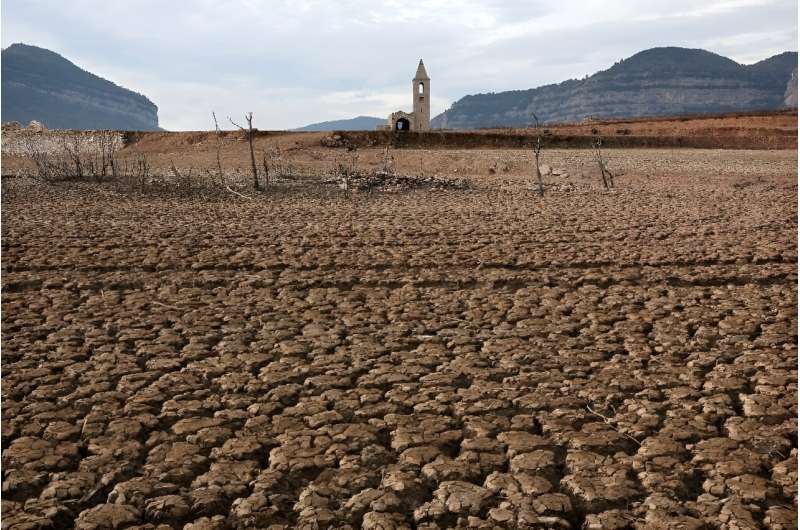
Rainfall has been lower than the average in Catalonia for the past three years, with the drought lasting more than twice as long as the previous dry spell of 2008, the regional government says.
Ghost villages that were flooded to create reservoirs in this northeastern region are once again emerging because water reserves have run so low. And when the reservoirs fall below 16 percent of their capacity—which seems imminent—the region will declare a state of emergency.
Barcelona and its metropolitan area would likely be the most affected in a move that could reduce water pressure in the homes of its five million residents to bring daily consumption down from 200 liters per person to 160.
Global warming is increasing both the frequency and the intensity of droughts that are having an impact on food security.
“Last year, this area lost 100% of its grain crops, 90% of its fodder and its olive oil,” Francesc Bancells, a spokesman the regional farmers’ union Unio de Pagesos, told AFP.
The Agua Es Vida “Water Is Life” NGO has denounced the regional authorities for failing to regulate tourism and continuing to host major events in Barcelona, both of which consume huge quantities of water.
The Catalan government gives water to “farming, livestock, the hotel sector and cities without first thinking how much water we actually have. And this has brought us to the point of collapse,” said a spokesman, Dante Maschio.
During the last drought 15 years ago, boats “brought 20 million liters” of water to the region, but today it needs “a billion liters per day. So, they are only bringing in 2.0 percent of what we need”, he said.
“And it is very, very expensive.”
Catalonia has built desalination plants and adopted other measures but Sanchez-Vila says it is crucial to improve the use of both wastewater and groundwater resources.
The other Spanish region struggling with a severe drought is Andalusia, where regional president Juan Manuel Moreno has warned there will be restrictions in cities like Seville and Malaga in summer if the lack of rain persists.